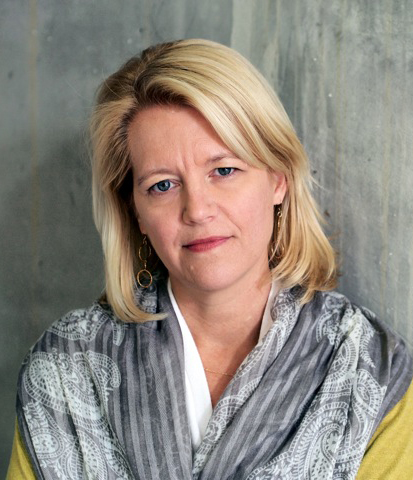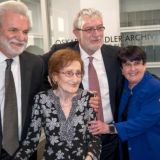
A Troubling Portrait: German Women and the Third Reich
December 3, 2014
A few weeks ago I wrote about how Bettina Stangneth’s book
Eichmann Before Jerusalem: The Unexamined Life of a Mass Murderer
had transformed our understanding of the perpetrator Adolf Eichmann. So too has Wendy Lower’s book
Hitler’s Furies: German Women in the Nazi Killing Fields
expanded our knowledge of German women in the Third Reich, offering a much more nuanced, complex, and indeed, troubling portrait of the young German women who chose to go to “the wild east.”
Nazi racial ideology promoted a view of so-called “Aryan” women as wives and mothers. While young men were to contribute to the Nazi goals of “race and space,” to quote Doris Bergen, by propagating children and fighting on the battlefield, young women were to do their duty by marrying, giving birth to as many children as possible, and maintaining a home where children were nurtured in the ideology of the Third Reich. Women who excelled in their duty became eligible for the counterpart to the Iron Cross, the Mother’s Cross: bronze for those who had four to five children; silver for those who had six to seven, and gold for those who gave birth to eight or more.
Some women–the names of Irma Grese and Ilse Koch come readily to mind–became active perpetrators of torture and genocide. Yet, until Lower’s groundbreaking research, we generally regarded German women as guardians of the home front, misguided but not directly culpable for the evil perpetrated by the Third Reich.
Hitler’s Furies
opens a new window on the lives of German women and the roles and opportunities they chose. As Lower writes: “The Nazi regime mobilized a generation of young female revolutionaries who were conditioned to accept violence, to incite it, and to commit it, in defense of or as an assertion of Germany’s superiority. This fact has been suppressed and denied by the very women who were swept up in the regime. . . Minimizing women’s culpability to a few thousand brainwashed and misguided camp guards does not accurately represent the reality of the Holocaust.” (Hitler’s Furies, p. 166). As Dr. Lower powerfully states: “Genocide is also women’s business.” (p. 166)

We are honored that
Dr. Lower will be speaking
about her work on Thursday, December 4, at 4 p.m. in the Bush Conference Center, Beckman 404, on the Chapman University campus. I hope you will attend.
Admission is free. No tickets/reservations required.
Reserved seating is available for groups of 10 or more.
Contact Ashley Bloomfield at (714) 532-7760 or ambloom@chapman.edu to make group reservations.
